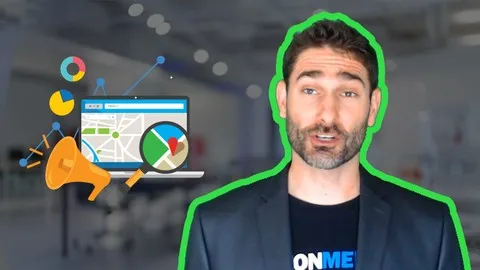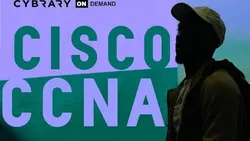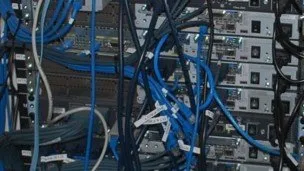
Packet Tracer labs for the CCNA 200-301 exam: Practical labs 
This comprehensive packet tracer lab guide provides practical exercises to help prepare for the CCNA 200-301 exam. It covers all the new material and is designed to help ensure success on the exam. ▼
ADVERTISEMENT
Course Feature
![]() Cost:
Cost:
Free
![]() Provider:
Provider:
Udemy
![]() Certificate:
Certificate:
No Information
![]() Language:
Language:
English
![]() Start Date:
Start Date:
On-Demand
Course Overview
❗The content presented here is sourced directly from Udemy platform. For comprehensive course details, including enrollment information, simply click on the 'Go to class' link on our website.
Updated in [April 29th, 2023]
Course Overview:
This course is designed to help you prepare for the CCNA 200-301 exam. It covers new material and provides hands-on labs to help you verify your knowledge of CCNA exam topics. You will learn how to configure and troubleshoot Cisco networks, as well as gain the confidence to pass the exam. This course is taught by David Bombal, a Cisco Certified Interwork Engineer (CCIE) with over 15 years of experience teaching networking courses.
Possible Development Directions:
This course is the perfect starting point for anyone interested in pursuing a career in networking. With the growth of the Internet of Things (IoT), the demand for networking engineers is only predicted to increase. After completing this course, you will have the knowledge and skills to design, install, and maintain networks for companies of all sizes. You will also be able to pursue further certifications, such as the Cisco Certified Network Professional (CCNP) and Cisco Certified Internetwork Expert (CCIE).
Related Learning Suggestions:
In addition to this course, you may also want to consider taking other courses related to networking. These include courses on network security, network design, and network automation. You may also want to consider taking courses on specific networking technologies, such as Cisco routers and switches, or HPE networking products. Finally, you may want to consider taking courses on specific protocols, such as BGP, OSPF, and EIGRP.
[Applications]
Upon completion of this course, students will be able to apply their knowledge of networking topics to the CCNA 200-301 exam. They will be able to configure and troubleshoot real networking devices such as routers and switches. Students will also be able to confidently discuss networking topics and have the knowledge to break into the networking field.
[Career Paths]
Recommended Career Paths:
1. Network Engineer: Network engineers are responsible for designing, implementing, and maintaining computer networks. They must have a strong understanding of networking protocols, hardware, and software. Network engineers must also be able to troubleshoot and diagnose network issues. With the growth of the Internet of Things (IoT), the demand for network engineers is expected to continue to grow.
2. Network Administrator: Network administrators are responsible for managing and maintaining computer networks. They must have a strong understanding of networking protocols, hardware, and software. Network administrators must also be able to troubleshoot and diagnose network issues. With the growth of cloud computing, the demand for network administrators is expected to continue to grow.
3. Network Security Engineer: Network security engineers are responsible for designing, implementing, and maintaining secure computer networks. They must have a strong understanding of networking protocols, hardware, and software. Network security engineers must also be able to troubleshoot and diagnose network security issues. With the growth of cyber security threats, the demand for network security engineers is expected to continue to grow.
4. Network Architect: Network architects are responsible for designing, implementing, and maintaining computer networks. They must have a strong understanding of networking protocols, hardware, and software. Network architects must also be able to troubleshoot and diagnose network issues. With the growth of cloud computing and the Internet of Things (IoT), the demand for network architects is expected to continue to grow.
[Education Paths]
Recommended Degree Paths:
1. Bachelor of Science in Computer Networking: This degree program provides students with a comprehensive understanding of computer networking principles, technologies, and protocols. Students learn how to design, implement, and manage networks, as well as how to troubleshoot and secure them. This degree is becoming increasingly important as the demand for skilled network engineers continues to grow.
2. Master of Science in Network Security: This degree program focuses on the security aspects of computer networks. Students learn about the latest security technologies and protocols, as well as how to design and implement secure networks. This degree is ideal for those looking to specialize in network security and become a security expert.
3. Master of Science in Network Engineering: This degree program focuses on the engineering aspects of computer networks. Students learn about the latest networking technologies and protocols, as well as how to design and implement networks. This degree is ideal for those looking to specialize in network engineering and become a network expert.
4. Doctor of Philosophy in Networking: This degree program focuses on the research aspects of computer networks. Students learn about the latest networking technologies and protocols, as well as how to design and implement networks. This degree is ideal for those looking to specialize in network research and become a network expert.
Developing Trends:
1. Network Automation: Network automation is becoming increasingly important as organizations look to reduce costs and increase efficiency. Automation technologies such as software-defined networking (SDN) and network function virtualization (NFV) are becoming more popular as organizations look to reduce manual configuration and management of networks.
2. Network Security: Network security is becoming increasingly important as organizations look to protect their networks from malicious actors. Technologies such as firewalls, intrusion detection systems, and encryption are becoming more popular as organizations look to protect their networks from malicious actors.
3. Network Analytics: Network analytics is becoming increasingly important as organizations look to gain insights into their networks. Technologies such as network monitoring, traffic analysis, and predictive analytics are becoming more popular as organizations look to gain insights into their networks.
Course Provider

Provider Udemy's Stats at AZClass
Discussion and Reviews
0.0 (Based on 0 reviews)
Explore Similar Online Courses

Local SEO Course: 10x Your Local Customers

JavaScript Basics Course

Python for Informatics: Exploring Information

Social Network Analysis

Introduction to Systematic Review and Meta-Analysis

The Analytics Edge

DCO042 - Python For Informatics

Causal Diagrams: Draw Your Assumptions Before Your Conclusions

Whole genome sequencing of bacterial genomes - tools and applications

CCNA (Cisco Certified Network Associate) Course

CCNA Quiz Questions: Exam prep Get ready for your exam!

Cisco CCNA Getting Started
 Related Categories
Related Categories
 Popular Providers
Popular Providers
Quiz
 Submitted Sucessfully
Submitted Sucessfully
1. What is the ideal student for this course?
2. What is the main purpose of this course?
3. What is the prerequisite for this course?


Start your review of Packet Tracer labs for the CCNA 200-301 exam: Practical labs